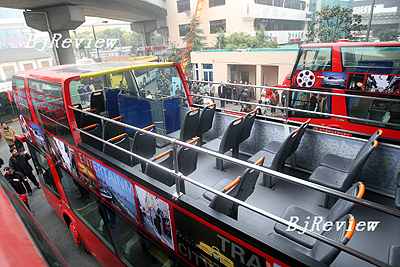|

Farewell to Plastic Bags
China will impose limits on the use of plastic bags starting on June 1, as part of its dual campaign to protect the environment and save energy.
In a circular posted on the Central Government's website on January 8, the General Office of the State Council ordered a ban on the production, sale and use of ultra-thin bags (defined as less than 0.025 mm thick) as of June 1. Further, supermarkets and shops will be banned from giving free plastic bags to customers as of that date.
With the decision, China joins many governments that have moved to limit the manufacture, sale and use of plastic bags, according to the circular.
The campaign will encourage citizens to use fewer plastic bags. Supermarkets and shops must offer clear price tags for plastic bags and charge consumers separately for them.
Top Scientists Honored
Petrochemical scientist Min Enze and botanist Wu Zhengyi have been granted this year's State Scientific and Technological Award, the top science prize in China, for their outstanding achievements.
Chinese President Hu Jintao, with other senior leaders, presented awards of 5 million yuan ($685,000) each to the two scientists at the annual national science-technology award ceremony on January 8.
The Chinese Government also issued awards for outstanding research and development projects in the areas of physical science, technology innovation and the application of scientific findings and technological development.
In a speech at the award ceremony, Premier Wen Jiabao called for major technological breakthroughs in key fields such as the exploration of energy resources, environmental protection, pollution control, product quality, and food safety and production.
Busy Year in Space
China will launch 15 rockets, 17 satellites and the Shenzhou 7 spacecraft in 2008, the Commission of Science Technology and Industry for National Defense (COSTIND) said in early January.
Huang Qiang, Secretary General of the COSTIND, said Shenzhou 7, the country's third manned space mission, was a major task for the year. He urged full cooperation between all related departments for the program. Further details of the rockets and satellites were not provided.
Huang also said that nearly 30 new technologies would be used during the Beijing Olympic Games this summer, including the Olympic torch, security system and meteorological services provided by a new satellite.
Wish for New Year
A drop in headline-hogging inflation figures is at the top of the New Year wish list for Chinese, a recent poll shows. Of the 3,200 people who participated in an online poll to choose their wishes from 21 options, four in five chose "drop in consumer price index (CPI)" as their foremost.
Despite an 8 percent rise in per-capita net income, the highest since 1997, two in three urbanites and nearly three in five rural residents surveyed by the Chinese Academy of Social Sciences said price hikes were "the social issue of highest concern" last year.
A successful Summer Olympics in Beijing followed the CPI drop as the second most commonly shared wish, with 60 percent choosing the option.
Tibet Shakes
An earthquake measuring 6.9 on the Richter scale hit southwest China's Tibet at 4:26 p.m. on January 9, according to the China Seismological Monitoring Network.
The epicenter was about 100 km east of the remote Gerze County in Ngari Prefecture. No casualties have been reported so far, but residents in Gerze felt the shock strongly, according to the Tibet Seismological Bureau.
The quake was the strongest to hit the region in the past decade, the bureau added. The county government is organizing officials to travel to the affected area to check the damage.
Tibet is one of the most earthquake-prone areas in China. Since 1900, the region has suffered more than 600 quakes with magnitudes of over 5. | 